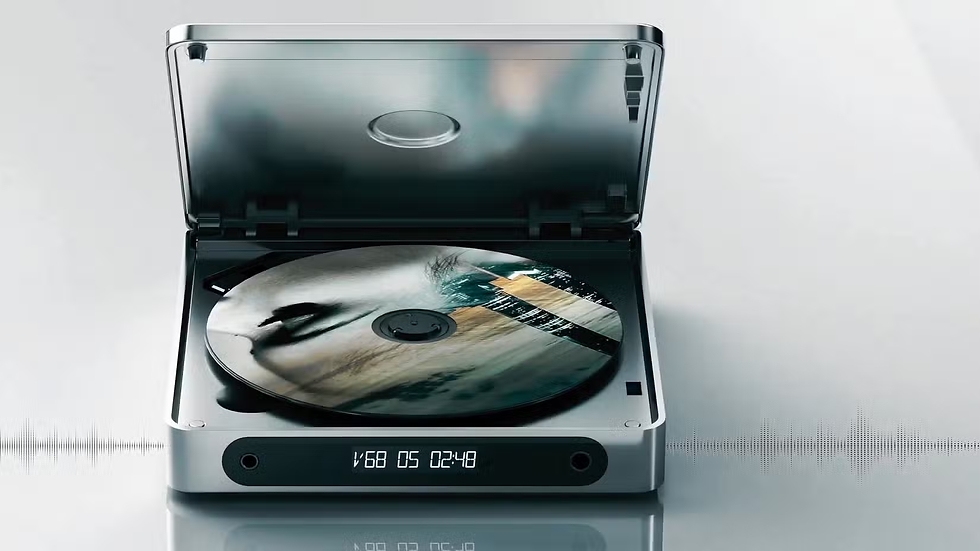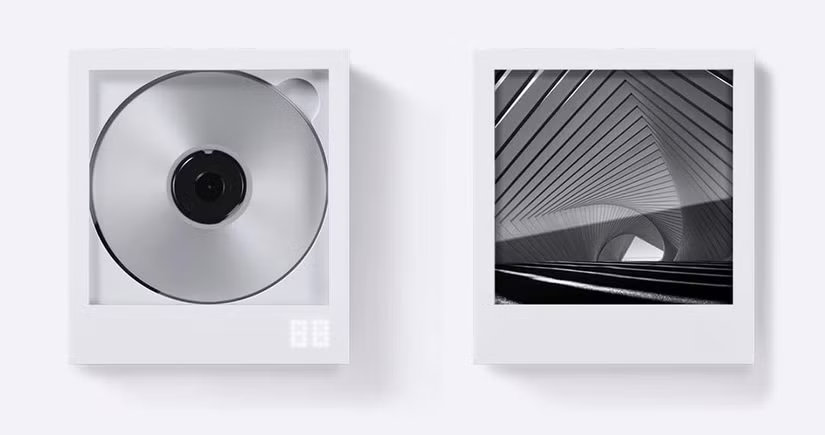The Continued Value Of Purchasing CDs In 2024
- Jack Mitchell
- Aug 27, 2024
- 4 min read
Updated: Sep 4, 2025
Traditional music technology is experiencing a notable revival, as seen by a substantial increase in vinyl, cassette, and CD sales. Despite my appreciation for the convenience of music streaming services, I contend that purchasing CDs remains valuable in 2024.
CDs Prevent Expenditure on a Music Subscription Service
I possess a music streaming membership; yet, I frequently listen to the same playlists, leading me to question the value of the monthly price. A significant portion of the music I enjoy on Spotify is already included in my home music collection, and I mostly pay for the convenience and practicality of streaming services. It raises the question: would the substantial annual expenditure on music subscriptions be more judiciously allocated to actual recordings?
The advent of music streaming has transformed the industry, however its effects are not all beneficial. Artists receive diminished compensation, and record companies and streaming services acquire the majority of profits. Algorithms influence our choices and establish trends, but emerging artists sometimes lack the recognition they merit. Moreover, streaming services often impose an additional fee for CD-quality audio.
CD Quality Surpasses Compressed Digital Formats

The FiiO DM13 with the cover ajar. Starscream Communications Music streaming platforms such as Apple Music, Amazon Music Unlimited, and Tidal currently offer high-resolution audio. With the forthcoming launch of Spotify HiFi, all principal platforms will provide the capability to stream in 16-bit or superior quality that matches or surpasses that of CDs. Nonetheless, a significant portion of this quality is imperceptible to the ordinary listener unless the music is played on high-fidelity equipment or transmitted through superior Bluetooth codecs during wireless connections.
The binary basis of digital music renders CD quality technically inferior than analog sound reproduction. Nonetheless, it far surpasses the quality of compressed digital formats such as MP3. The 16-bit 44.1 kHz standard CDs give can replicate all frequencies discernible by the human ear, but MP3 and other compressed formats are a considerable compromise. To attain CD-quality sound when storing your digital music library on a hard drive, storage device, phone, or digital music player, it is imperative to choose a lossless format such as ALAC, AIFF, WAV, or FLAC.
CDs Conserve Storage Space on Your Devices
Lossless formats present the issue of significantly greater file sizes. The quantity of your music collection may necessitate concessions while utilizing a portable device for listening, perhaps consuming significant space on your computer's hard disk. I utilize a laptop with substantial storage capacity. I have relocated my digital music files to an external hard drive to provide sufficient capacity for song development and movie editing.
A CD is an independent digital storage medium, and if space permits, it is logical to provide a specific area for your music collection separate from your digital devices. As I ready my antiquated CD collection, I am contemplating the acquisition of a contemporary CD player to optimize audio quality and augment my library with fresh acquisitions and songs transferred from my vinyl records.
CD players can be both compact and aesthetically pleasing.

The world has evolved since the apex of the CD era, and we now prefer tiny gadgets to huge Hi-Fi separates and bulky floor-standing speakers. Contemporary entertainment centers rarely possess the space to accommodate more than a game console, a soundbar, and a TV streaming device; however, fortunately, CD players have also evolved with the times.
Although 19-inch Hi-Fi separates are available for purchase, numerous manufacturers are now creating compact CD players that deliver exceptional performance. Some prices surpass thousands of dollars, indicating that the CD format remains vibrant within audiophile communities. Conversely, some of the finest new CD players are pragmatic, economical, and incorporate contemporary features like as Bluetooth connectivity.
Compact discs are frequently inexpensive to purchase.
CDs are cost-effective and provide perpetual ownership, in contrast to subscription systems, where downloads eventually expire. New CD releases typically retail for approximately $15, while classic albums and compilations are available on Amazon for between $5 and $10. As expected, prices for CDs in the secondary market are reduced, with sought-after releases available for as little as $2 to $5 online.
CDs may still be located at lower prices in charity shops and thrift stores, although the likelihood of discovering a desirable item is contingent upon chance. Consequently, procuring albums is among the most gratifying aspects of possessing tangible music. I have dedicated entire afternoons to searching for deals and concealed treasures among the CD racks—an endeavor that is diminishing in the era of streaming media.
Having a physical music collection on CD shelves is gratifying.

Your music collection, akin to your clothing preferences or wall art, reveals significant insights about your identity. Physical music media features appealing visuals and insightful sleeve notes, while a CD collection, like to a well-curated library, enhances the aesthetic value of a living environment. There's plenty to be said for exploring a shelf full of CDs to contemplate what to play—something that frequently can't be said for scrolling through an app where you'll likely be swamped with suggestions that don't represent your mood.
Having been a vinyl collector for over two decades, I appreciate physical music media; nevertheless, I find CDs to be more durable, alleviating any anxiety when a friend peruses my collection. A properly maintained CD can endure indefinitely, and establishing a substantial CD collection should not require an extensive amount of time. Analog media can be effortlessly converted to CD format as a safeguard against deterioration, allowing for portable listening.
The drop in the popularity of CDs is readily apparent. With the development of digital music players, MP3 swiftly became the gold standard, harming the whole music industry as piracy and duplication were rife. Music streaming services have commendably addressed certain challenges; yet, a new generation is content to revert to fundamentals. As an individual who cherishes their vinyl collection yet enjoys listening to music when mobile, CDs offer an ideal balance, particularly when opting to access music offline. Traditional music technology is seeing a notable revival, evidenced by a substantial increase in the sales of vinyl, cassettes, and CDs. Despite my appreciation for the convenience of music streaming services, I contend that purchasing CDs remains worthwhile in 2024.



Comments